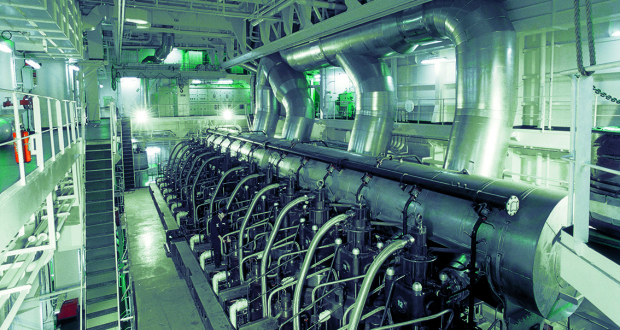ExxonMobil reveals its new MobilGard Cylinder Condition Monitoring (CCM) programme which is designed to help optimise engine protection and reduce operating costs. The company says that data analysis can provide insight into feed rates, component wear and engine failure.
Data from the programme shows 50% of vessels are not operating at optimal feed rates. The analysis also demonstrated a growing issue with cat fines and continued cold corrosion challenges for many operators. Key findings included:
- 43% of vessels have an issue with cat fines, which can lead to catastrophic engine failure in severe cases
- 15% are suffering from cold corrosion, which can reduce engine life dramatically if operators fail to address the problem quickly
- 9% of vessels see high levels of iron in the scrape down oil. This is indicative of engine wear and can lead to reduced piston, liner and overall engine life
- 25% are experiencing water washing problems. The presence of water in the engine removes the cylinder oil from the liners and can cause high wear
“It is no secret that the marine industry is facing challenging times,” said Iain White, Global Marketing Manager at ExxonMobil Marine.
“Operators are constantly under pressure to save money, so efficiency continues to be front of mind. The data captured by our MobilGard CCM programme has indicated that many are missing the opportunity to drive that efficiency, and some are even facing a real risk of catastrophic engine failure.”
ExxonMobil explains that the operators on the programme receive a tailored lubrication recommendation, based on extensive data samples that benchmark their specific engine and operating conditions. The data analysis will help customers to optimise their feed rates, maximise their engine life and ultimately reduce overall operating costs, the company says.






























































